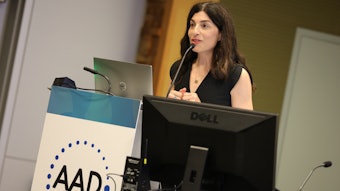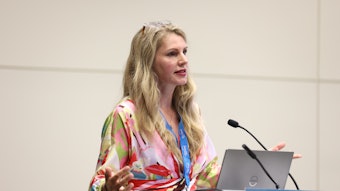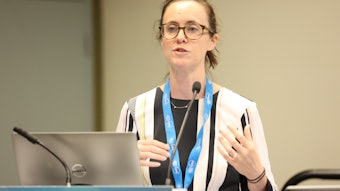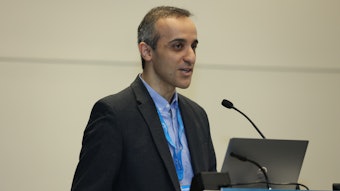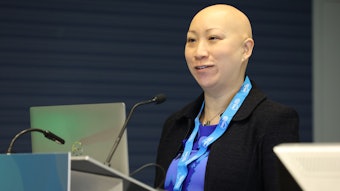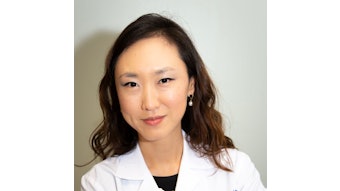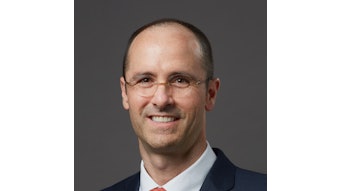How are your diagnostic skills?
Accuracy improves with a conscious approach.

PO17 – Approach to Improving Diagnosis
Friday, July 22 | 3:30-5:30 p.m.
How accurate are your diagnoses? If you’ve logged 10 years or more in clinical practice, you’ve probably honed your skills and have a good track record of accurate diagnoses. Conversely, residents, fellows, and dermatologists who are newer to practice may be better at treating than at diagnosing.
“We teach residents enormous numbers of diseases, but the more common things like dermatophytosis and other fungal infections, nummular dermatitis, psoriasis, we focus on less,” said Jason B. Lee, MD, FAAD, professor of dermatology and cutaneous biology and director of both the Jefferson Dermatopathology Center and the Dermatopathology Fellowship and Pigmented Lesion Clinic at Thomas Jefferson University Sidney Kimmel Medical College. “Those common diseases are missed more often than the rare diseases, particularly genetic diseases, that we emphasize when we teach residents.”
There are no easy answers for improving diagnostic accuracy, Dr. Lee said. In some cases, diagnostic errors arise from being less familiar with specific populations such as hospital inpatients or children that tend to have distinct dermatologic problems and presentations. Variations in skin color that can skew or obscure some diagnostic clues. But the biggest predictor of diagnostic error is lack of experience. In Friday’s session, P017 – Approach to Improving Diagnosis, Dr. Lee focused on ways to improve diagnostic accuracy.
Things are not always as they appear
Dr. Lee reminded attendees not to expect a condition to look like it does in a textbook or PowerPoint presentation.
“I often remind residents that diseases don’t read like the textbooks and don’t always look the way we think they should,” Dr. Lee said. “The more recognizable presentation of a disease may not be so common. For example, the silvery-white scales on the elbows and knees characteristic of psoriasis, I hardly ever see that. It’s diagnostic when I do see it, but it’s just not the way most people present with psoriasis.”
The problem is not that less experienced practitioners lack knowledge but that they have not yet learned to distinguish between similar conditions. Dermatology is a perceptual specialty and training perception takes time, learning from errors, and feedback.
Experience key to expertise
Expert diagnosticians seem to walk into a room and pull the correct diagnosis out of thin air in a few seconds. It’s not magic, Dr. Lee said, but experience.
“Experts have learned, over 10 years or longer, to gather the more pertinent information quickly, almost subconsciously,” Dr. Lee said. “It is done through heuristics, mental shortcuts. But those shortcuts are more prone to error in younger faculty or clinicians who are less experienced and still thinking of all those rare and exotic conditions they had to remember during training. It is easy to forget mimics that are more common and more likely to walk through the door.
An example Dr. Lee shared is when a patient presents with a moist, red lump that bleeds easily. It’s tempting, he said, to think poroma, a benign tumor of the sweat glands that is unusual enough to get special mention during residency. It can take more experience to reconsider and think pyogenic granuloma, a look-alike that is so common it gets mentioned almost in passing.
No shortcuts to success
Feedback can help ease the learning curve, but experience takes time.
“I have been working with residents for over 25 years,” Dr. Lee said. “We teach the same things every year and every year residents seem to go through the same learning process. There are no shortcuts. Reading textbooks doesn’t make you an expert and two or three illustrations can’t show you the spectrum of psoriasis. Thinking about your diagnoses, what the condition is more likely to be, really talking with your patient and paying attention, getting feedback and recalibrating so you aren’t making the same mistake over and over. Those are the ways to improve diagnoses.”
Visit AAD DermWorld Meeting News Central for more articles.
